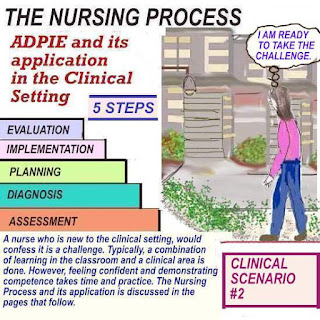CARDIOGENIC SHOCK - QUIZ QUESTIONS
Myocardial infarction
A heart attack is the layman's term for a (MI) myocardial infarction.
- cool clammy skin due to poor perfusion
- respiratory compromise
It is caused by a lack of blood supply to the heart muscle. A blood clot
or plaque, may obstruct the flow of blood. This typically occurs in the
patient with CAD ( coronary artery disease). Symptoms include:
chest pain which may radiate to the shoulder and jaw, pressure or
tightness in the chest, anxiety, nausea, vomiting and shortness of breath.
or plaque, may obstruct the flow of blood. This typically occurs in the
patient with CAD ( coronary artery disease). Symptoms include:
chest pain which may radiate to the shoulder and jaw, pressure or
tightness in the chest, anxiety, nausea, vomiting and shortness of breath.
Cardiogenic shock
The left ventricle receives its blood supply from the LAD ( left anterior descending)
artery. If the flow of blood to the left ventricle is obstructed by a clot or plaque, part
of the heart muscle may die. This lack of blood flow to the left ventricle causes pump
of the heart muscle may die. This lack of blood flow to the left ventricle causes pump
failure. Cardiogenic shock may result from pump failure.
Signs of cardiogenic shock include:
- respiratory compromise
- hypotension, as the heart loses its ability to pump enough blood - altered mental status, oliguria ( a decrease in urinary output)
Watch the video: Cardiogenic shock
Clinical picture of the patient in Cardiogenic Shock ( above)
Cool, clammy skin, hypotension, oliguria, altered mental status,
and respiratory compromise, decrease in O2 saturation.
EKG changes will also be detected.
and respiratory compromise, decrease in O2 saturation.
EKG changes will also be detected.
For more helpful information:
Management of Cardiogenic Shock
ICU care will be necessary for the patient in cardiogenic shock. Mechanical ventilation
is usually needed to supply adequate oxygenation. Some drugs that may be used are:
TPA to dissolve blood clots, Heparin ( an anticoagulant), Dobutamine ( for cardiac output)
and Dopamine to improve blood pressure. Enjoy watching the videos:
The new nurse - Respiratory distress
is usually needed to supply adequate oxygenation. Some drugs that may be used are:
TPA to dissolve blood clots, Heparin ( an anticoagulant), Dobutamine ( for cardiac output)
and Dopamine to improve blood pressure. Enjoy watching the videos:
The new nurse - Respiratory distress
Quiz questions:
1) What is the layman's term for a myocardial infarction?
2) What are some of the symptoms of a myocardial infarction?
3) What causes cardiogenic shock?
2) What are some of the symptoms of a myocardial infarction?
3) What causes cardiogenic shock?
4) What are some of the signs of the patient in cardiogenic shock?
5) How is cardiogenic shock managed?
5) How is cardiogenic shock managed?
Clinical picture of the patient in Cardiogenic Shock





Comments
Post a Comment